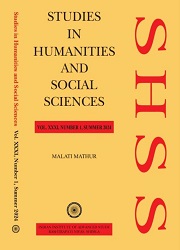Greek Skepticism
From Pyrrho To Sextus Empiricus
Keywords:
Greek Skepticism, Pyrrho, Sextus Empiricus, Arcesilaus, CarneadesAbstract
Translation of the works of Sextus Empiricus concerning Greek
skepticism at the beginning of the 16th century activated the
Continental philosophers and later the British philosophers.
Skepticism did one great service to philosophy--it led to the
introduction of the modern age of philosophy in the Continent.
Later, Britain too, got liberated from the medieval thinking.
Skepticism was a direct enemy of dogmatism. Many scholars consider
Plato as the first skeptic and Aristotle as the first dogmatist. The view
got currency through the influence of Arcesilaus and Carneades
who were the directors of Plato’s Academy during the Hellenistic
age. The credit, however, is given to Pyrrho of Elis for giving birth
to skepticism. It became mature by the time it reached the age of
Sextus Empiricus. This paper is devoted to Greek skepticism. Since
skepticism as a school of thought occurred only in Greece, a historical
synoptic glance has been cast at the Greek skeptics, beginning with
Pyrrho and ending with Sextus Empiricus.


